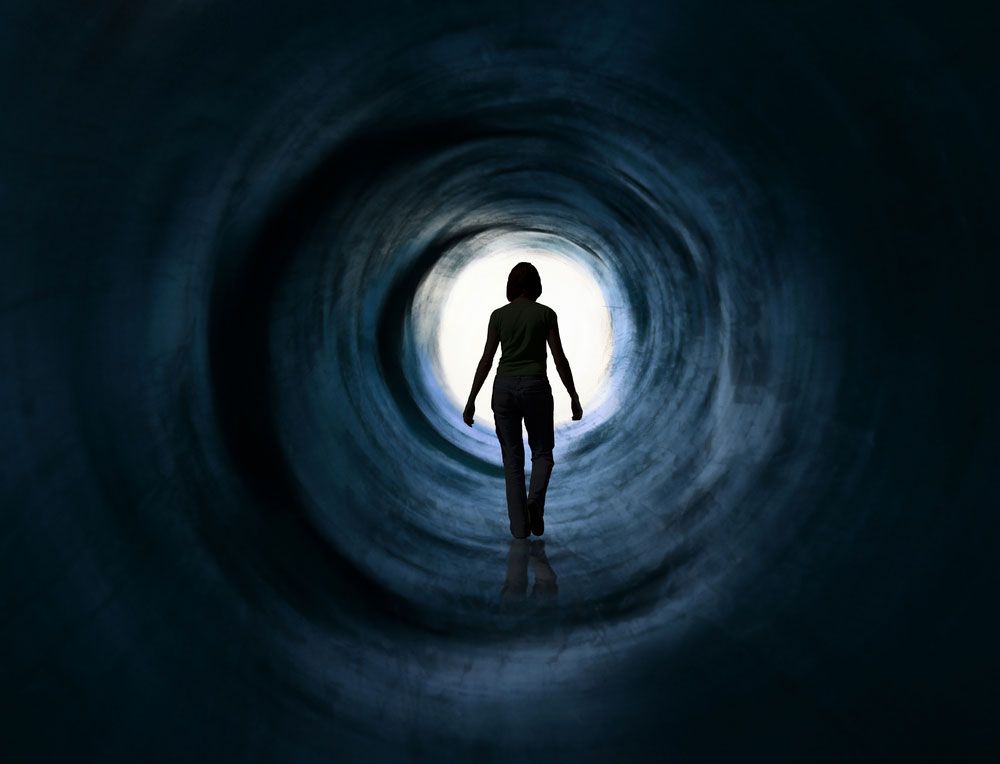tl;dr: It is not possible to die in a lucid dream

Lucid dreaming is a fascinating phenomenon that allows you to become aware and in control of your dreams. Many people wonder about the potential dangers of lucid dreaming, including the possibility of dying within a dream. Yes, can you die in a Lucid Dream?
In this article, we will explore the nature of lucid dreaming, the separation between dreams and reality, and the perceived dangers and limits of this unique experience.
Understanding lucid dreaming

Definition of lucid dreaming
Lucid dreaming refers to the state of being aware that you are dreaming while you are still in the dream itself. It is a state where you have conscious control over your actions and can actively shape the dream world around you. This awareness allows you to explore and experience your dreams in a whole new way.
Control and awareness in lucid dreams
In a lucid dream, you have the ability to manipulate the dream environment, interact with dream characters, and even alter the storyline of the dream. This level of control and awareness can be incredibly empowering and exciting. However, it is important to note that the laws of physics and reality do not apply in the dream world.
The nature of dreams and the physical body
Dreams as a product of the mind
Dreams are a creation of our minds, a product of our imagination and subconscious thoughts. They are not bound by the limitations of the physical world. In a dream, you can fly, breathe underwater, or even morph into different creatures. This freedom from physical constraints is what makes lucid dreaming such a unique and exhilarating experience.
The separation of the dream world and reality
While lucid dreams can feel incredibly real, they are ultimately a construct of our minds. The dream world is separate from the physical reality we inhabit. When you are in a lucid dream, your physical body remains safe and unaffected. This means that even if you were to experience something dangerous or life-threatening within a dream, it would not have any impact on your physical well-being.
Perceived dangers in lucid dreaming

Confusion with sleep paralysis
One of the perceived dangers of lucid dreaming is the confusion that can arise between lucid dreams and sleep paralysis. Sleep paralysis is a temporary inability to move or speak that occurs when transitioning between sleep and wakefulness. It can sometimes be accompanied by hallucinations, which can be frightening. However, it is important to note that sleep paralysis is a separate phenomenon from lucid dreaming and does not occur during the dream itself.
Emotional intensity and fear in dreams
Another concern people have is the emotional intensity and fear that can be experienced in dreams. Lucid dreams can evoke strong emotions, including fear. However, it is important to remember that these emotions are not real and cannot cause harm to your physical body. In fact, many people use lucid dreaming as a tool to confront and overcome their fears in a safe and controlled environment.
The limits of lucid dreaming

Physical sensations in dreams
While lucid dreams can feel incredibly vivid, it is important to note that physical sensations experienced within a dream are not the same as those in reality. For example, if you were to jump off a building in a dream, you would not experience the physical pain or injury that would occur in real life. The dream world does not have the same physical consequences as the waking world.
Waking up from a lucid dream
Another limit of lucid dreaming is the fact that you will eventually wake up from the dream. Lucid dreams can be fleeting, and the level of control and awareness may vary from dream to dream. While it can be disappointing to wake up from a particularly vivid or exciting lucid dream, it is important to remember that you can always have more lucid dreams in the future.
Benefits and potential risks of lucid dreaming
Enhanced creativity and problem-solving skills
Lucid dreaming has been linked to enhanced creativity and problem-solving skills. By actively engaging with your dreams, you can tap into your subconscious mind and explore new ideas and perspectives. This can be particularly beneficial for artists, writers, and anyone looking to expand their creative horizons.
Overcoming nightmares and fears
One of the most powerful applications of lucid dreaming is its potential to help overcome nightmares and fears. By becoming aware that you are dreaming, you can actively confront and change the elements of the dream that are causing fear or distress. This can lead to a sense of empowerment and a reduction in the frequency and intensity of nightmares.
Disruption of sleep patterns
While lucid dreaming can be a rewarding experience, it is important to note that it can also disrupt your sleep patterns. Becoming too focused on lucid dreaming or spending excessive amounts of time in the dream world can lead to sleep deprivation and daytime fatigue. It is important to strike a balance between exploring lucid dreaming and maintaining a healthy sleep routine.
Conclusion

In conclusion, it is not possible to die in a lucid dream. Lucid dreaming offers a unique opportunity to explore and interact with the dream world in ways that are not possible in waking life. While there may be perceived dangers and limits to lucid dreaming, understanding the nature of dreams and the separation between dreams and reality can help alleviate any concerns. With proper knowledge and practice, lucid dreaming can be a safe and rewarding experience that opens up a world of possibilities within your own mind.
FAQs on Can You Die in a Lucid Dream
-
Can lucid dreams harm?
No, lucid dreams cannot physically harm you. However, they can sometimes cause emotional distress or anxiety.
-
What happens if you hurt yourself in a lucid dream?
If you hurt yourself in a lucid dream, you will not feel any physical pain. Your brain will simulate the pain, but it will not cause any actual harm to your body.
-
Can you get stuck in a dream?
No, you cannot get permanently stuck in a dream. Eventually, you will wake up naturally or through external stimuli like an alarm clock.
-
What not to do in a lucid dream?
It is important not to engage in dangerous or harmful activities in a lucid dream, as they can lead to negative consequences or affect your mental well-being. Avoid actions that may cause distress or anxiety.
Originally posted 2023-05-12 10:10:15.
With a holistic approach to sleep psychology, Yogi empowers people to enhance their overall well-being by fostering healthier sleep patterns and harnessing the potential of their dreams. Join us as we delve into Yogi’s profound wisdom and unlock the secrets of the nocturnal world.

